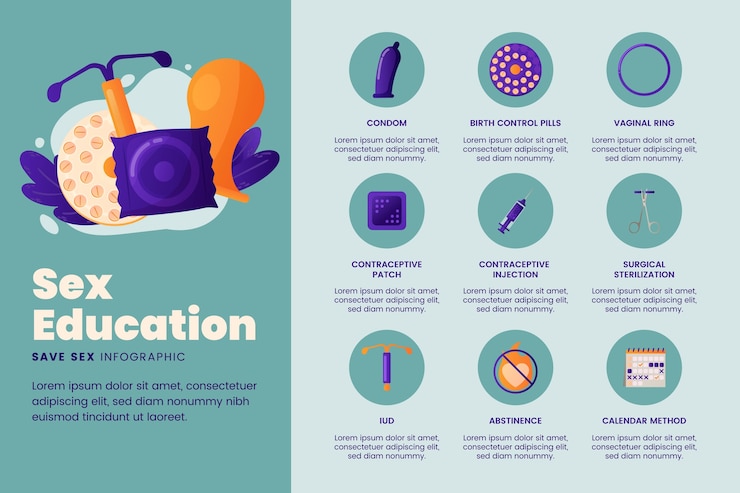
Inside: Research shows that following these six guidelines can provide children with a healthy understanding of their sexuality, intimacy, and relationships.
Table of Contents
Talking about sex with our kids can be daunting for most parents. Many imagine the dreaded “Sex Talk” as causing stress and avoidance. It’s widely known that sex education in the U.S. isn’t top-notch, and this has been shown to have negative effects. How can we discuss sex with our kids when many of us grew up in homes where the topic was either avoided or whispered about?
Regardless of your views on public sex education, parents can take charge of educating their own kids at home. Decades of research highlight the benefits of having honest discussions about sex with children from an early age.
Here’s what research suggests we should avoid when talking to our children about their sexuality. Many parents avoid the sex talk altogether, waiting until it becomes painfully clear their children have learned misinformation from less ideal sources.
Sex is everywhere in our society—on magazine covers, billboards, and TV—and ignoring it doesn’t stop our children from learning about it. However, it does hinder them from learning the correct information.
The Dutch excel at discussing sex with children, engaging in age-appropriate conversations early. The Netherlands reports more positive first sexual experiences, higher birth control use, and a teen pregnancy rate that is five times lower than in the U.S. Clearly, denial isn’t helpful.
Start by teaching children the correct names for body parts and what areas are private. It’s never too early to explain the difference between good and bad touch and emphasize that only parents or doctors can touch private parts for health reasons. Discussions about safe touch should happen throughout their development.
Use natural moments of curiosity, such as during bath time or when children see another child during a diaper change, to start conversations. When children ask about body parts or how babies are made, it’s a good time to explain simply: “A woman has an egg, and a man has a sperm, and together they create a baby.” Keep it straightforward.
Talking about sexuality early reduces embarrassment significantly. Young children lack the ability to think abstractly, so they won’t immediately associate sex with their parents. It also helps parents ease into these discussions.
Leverage various resources to help your child understand their body and emotions during puberty. As they grow, they’re able to learn about the bonds between love, sex, respect, and affection in intimate relationships.
Discussing media portrayals of sex and gender roles is vital. Children need to know the difference between television and real life. If they don’t hear about topics like pornography from you, they’ll encounter them elsewhere.
Create opportunities to discuss sex, boundaries, and intimacy. We must counteract confusing societal messages by reinforcing that children own their bodies and control their sexual behaviors. Equip them with language to express their sexual feelings and desires, understanding them as they develop.
Teens have the right to know about their anatomy and how to practice safe sex. Educating them doesn’t mean endorsing sexual activity. It’s about imparting your values and providing safety information.
Avoid using alternative names for body parts, which can imply shame or embarrassment. Instead, discussing sex and bodily issues with honesty encourages children to approach you with questions rather than turning to peers for answers.
Addressing sexuality with your child doesn’t have to be as explosive as it seems. Sorting out your own feelings about sex and intimacy helps you approach these talks from a supportive perspective. Let go of preconceived notions and view discussions through a fresh, natural lens. Human sexuality is natural and healthy.
To be a primary source of information for your child, be a good listener and give them space to speak without fear of judgment. They’re listening when we criticize others. Bring questions into the conversation, and you may find your kids reach sensible conclusions on their own.
Parents often emphasize what not to do rather than focusing on what to do in terms of sexuality and personal safety. Teach your child how to respond in dangerous or uncomfortable situations so they remember what to do when it matters.
Clearly express your values on sex and intimacy, along with their reasoning, to encourage critical thinking and help kids internalize these lessons. Conversations about sexuality should also cover emotional and social topics like relationships, intimacy, gender roles, and self-respect.
Discussing sex is an opportunity to teach about healthy boundaries and self-care in relationships. Not surprisingly, the Dutch start with these concepts as early as kindergarten, prompting kids to reflect on feelings from physical affection with loved ones.
While society offers confusing messages, parents can provide clarity. Research suggests it’s time for a shift in how we approach sexuality discussions, showing children we are comfortable with these topics.
Parents have more influence than they might think. Teens report that parents are the greatest influence on their views about sex. Your child looks to you for cues on understanding their body and intimate relationships.
Let’s move past confusing openness with permissiveness. We can empower and educate our children while clearly communicating our values and expectations.



